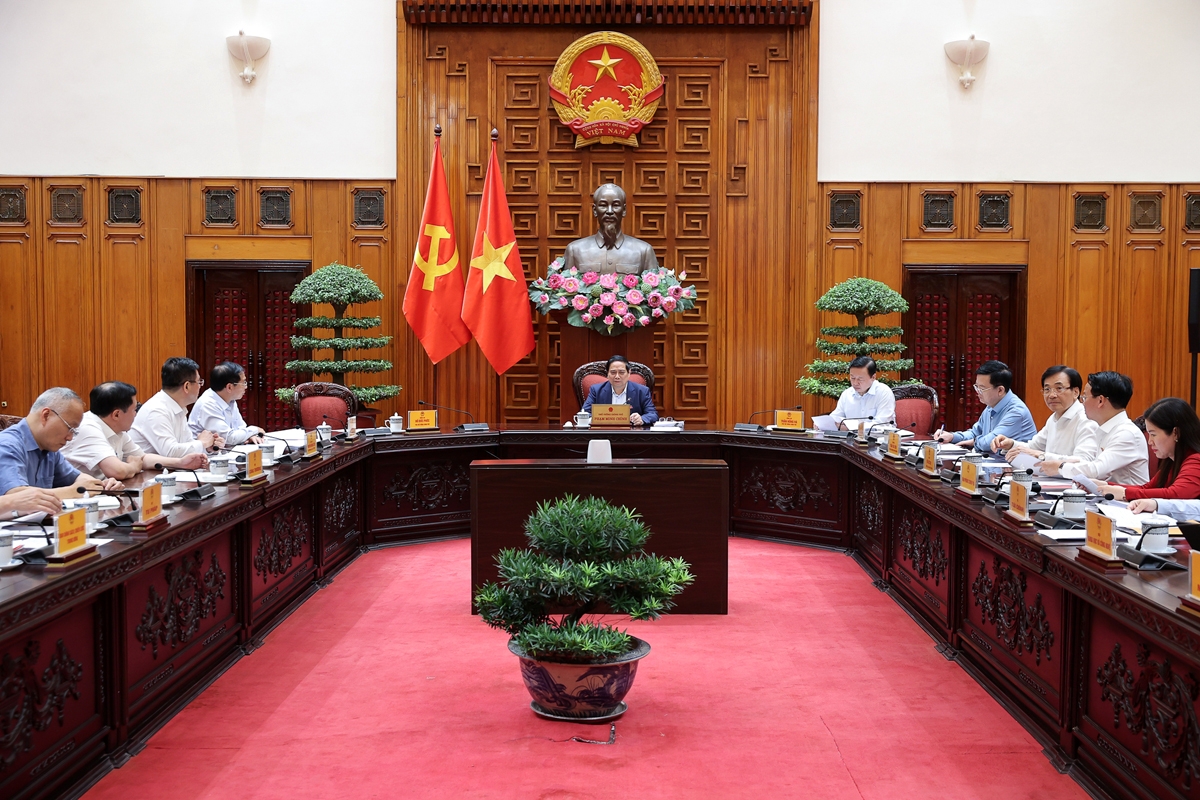Key Government members discuss draft law on e-commerce
VOV.VN - Prime Minister Pham Minh Chinh on June 17 evening chaired a meeting of the Government standing board to review preparations for the June law-making session of the Government, with a particular focus on the draft Law on E-Commerce and other key legislative matters.

The meeting was attended by Deputy Prime Ministers and leaders of relevant ministries, sectors, and government-affiliated agencies. Participants heard a report from the Ministry of Industry and Trade, the law drafting agency, and and held in-depth discussions on various aspects of the proposed legislation. Key topics included simplifying administrative procedures, promoting decentralisation and delegation of authority, resolving outstanding issues, and establishing timelines for submission to the National Assembly.
The Prime Minister underscored the strategic importance of the draft law in the context of Vietnam’s ongoing digital transformation and development of the digital economy. He emphasised the need for the legislation to concretise major policies of the Party and State, particularly recent Politburo resolutions on digital transformation, the digital economy, digital society, and digital citizenship. The bill, he noted, should also help remove existing legal obstacles and foster the growth of the private sector.
The Government leader stressed that the bill must balance effective state management with the need to create an enabling environment for economic growth. It should ensure tax compliance, promote fair competition, and guarantee equal access for all stakeholders. At the same time, it should support business development, job creation, and livelihoods, especially for household businesses and micro and small enterprises. In addition, the legislation must contain measures to combat counterfeit goods, smuggling, and unfair trade practices.
He also highlighted the need for clear delineation of responsibilities among agencies, stronger application of digital technologies in management, and greater decentralisation paired with appropriate resource allocation. The bill should improve implementation capacity at the grassroots level and incorporate tools to strengthen oversight and accountability.





